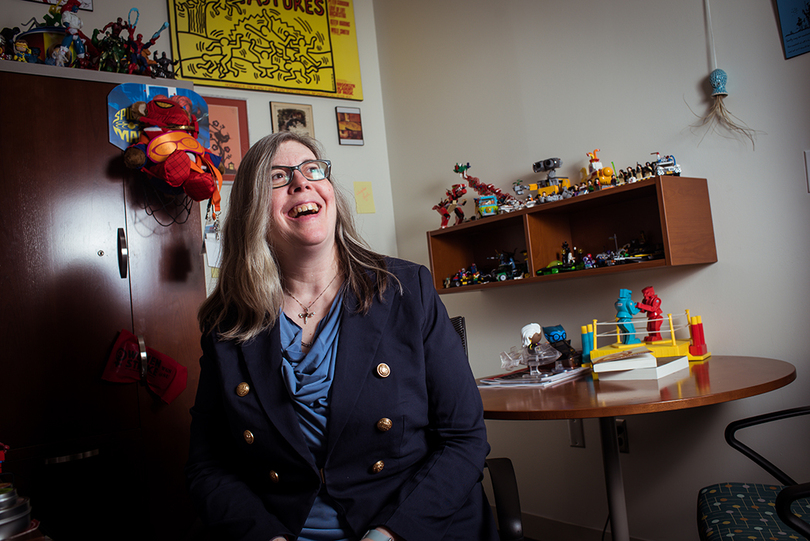Wiener also stresses the importance of intersectionality and a cross-disabilities perspective. She said it’s not possible to discuss issues regarding race and ethnicity without also discussing issues regarding gender, sexuality and disability, as well as considering spiritual identity or its absence.
Her efforts haven’t gone unnoticed by members of the SU community. Associate Dean of Hendricks Chapel Rebecca Reed Kantrowitz said she thinks Wiener’s work has already changed the culture of SU’s campus tremendously.
“I think we’ve really been blessed to have Diane always doing so much of the heavy lifting,” Kantrowitz said.
Priya Penner, a sophomore political science and citizenship and civic engagement major, said she feels welcome in all respects at the DCC.
“As a student on this campus, as a disabled student on this campus, I know that I have a space at the Disability Cultural Center,” Penner said. “Not only are my separate identities welcome at the DCC, but who I am as a person, a disabled, queer woman of color who was born in a different country, all of my identities and experiences and what those experiences create are welcome at the DCC.”
Devin Nonnenman is one of Wiener’s mentees and currently a resident adviser. The senior, who’s a chemistry and forensic science double major in the College of Arts and Sciences, said people don’t need to know or speak to Wiener to see the impact she’s made on campus.
Nonnenman has had Wiener talk to his residents about diversity, inclusion and disability culture. She ended up staying for more than three hours.
His residents realized how much Wiener cared about them, even though she’d only just met them and may never see them again, he said. They talked about her for weeks afterward.
While Wiener pushes for intersectionality at SU, she doesn’t deny the negative impact that intersectionality can have. She said that intersections can work together to create more oppressive experiences — and tying that into the Theta Tau videos, said that it’s possible to use intersections against a specific group of people.
“If people had doubts about the importance of intersectional identity, this video highlights how to use those ideas against people,” Wiener said. “I’m not shocked by what happened.”
She added that she and several of her colleagues felt this incident was inevitable, and Wiener is determined to create a sense of belonging for students who were hurt by it. That means going beyond inclusion.
There are some people like Diane and others involved in diversity and inclusion who get it. And they wake up every day trying to help people both in smaller and large ways.Stephen Kuusisto
“Inclusion isn’t good enough,” she said. “The protest that’s happening outside is a comment on that in a very deep and vivid way.”
Wiener said she was at Hendricks Chapel during one of the student forums for nearly five hours, listening and taking notes about how she and her role on campus can help the students and the university make changes.
When bad things like this happen in the world or on campus, it’s easy to think everyone is bad as well, said Stephen Kuusisto, a professor in the School of Education. But there are some people, like Wiener, who realize that’s not true. People who wake up every day trying to help people in big and small ways.
Said Kuusisto: “Diane’s knowledge, vision and imagination, I think will be central to bring a true embrace of diversity into play rather than just chatting about it.”
Banner photo by Alexandra Moreo
CORRECTION: In a previous version of this post, Rebecca Reed Kantrowitz’s position was misstated. Also, Diane Wiener was misnamed. The Daily Orange regrets these errors.







